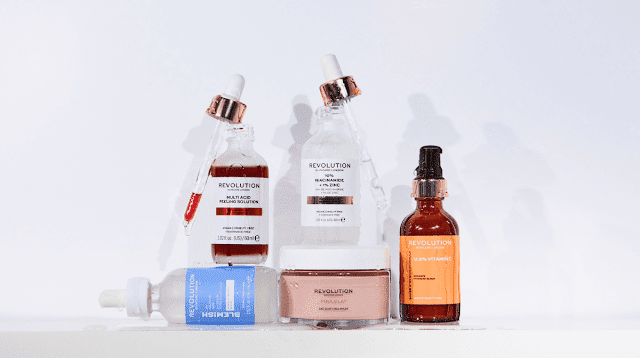Dealing with the aftermath of acne, from uneven skin texture to finding the right coverage, can be quite a challenge. Fortunately, we're here to guide you in selecting the most effective products for treating acne scars!
While there's no miraculous ingredient that can make scars vanish completely, we can certainly help you discover the right components that can visibly reduce discoloration and improve the texture of your skin, ultimately leading to a healthier and radiant complexion.
So, what causes these bothersome acne scars? To those of us who couldn't resist picking at our pimples, we understand – no judgment here! The issue arises when impurities, skin damage, and excessive sebum production lead to bacterial inflammation. This, in turn, triggers pigment-producing cells to become overly active, leaving behind dark spots and acne scars. The next question is, what types of acne scars exist?
There are various kinds of acne scars, each requiring a specific approach in treatment. Identifying the type of scarring you have is the first step in selecting the right products.
Hyperpigmentation is the most prevalent form of acne scar, and the good news is that it's not permanent. It typically appears more often in darker skin tones, while fair skin tones may exhibit pink or red patches on the surface, which usually fade away on their own within a few weeks.
Jagged scars, scientifically known as atrophic scars, are situated beneath the surrounding skin and occur when insufficient collagen is produced during the wound-healing process. Atrophic scars come in three specific varieties: ice pick, boxcar, and billowing scars. Hypertrophic scars, also referred to as keloids, are raised scars above the skin and are usually found on the chest and back.
Now, let's get to the good stuff – the best products for treating acne scars. Are you ready to find out which ingredients will help your skin shine?
Pro Tip: Before you embark on your acne scar treatment journey, make sure that all active breakouts have subsided, and resist the urge to pick at those pesky blemishes.
1. Nicotinamide (Niacinamide): Niacinamide, a water-soluble form of vitamin B3, is a versatile solution suitable for all skin types and ages. It assists in reducing breakouts, shrinking pores, and alleviating hyperpigmentation and redness. Moreover, it contributes to balancing oily skin and fortifying the skin barrier, making it an excellent choice for acne scar treatment. To use, shake niacinamide products well and apply a few drops to clean, dry skin, ideally in the morning and evening for optimal results.
2. Retinol: Retinol, a derivative of vitamin A, is a powerhouse for reducing discoloration and stimulating collagen and elastin production, making it a valuable addition to your skincare routine. It's vital to note that retinol can render your skin highly sensitive to sunlight, so always use a sunscreen. Retinol is particularly effective for atrophic scars. For evening use, apply a few drops of Retinol Serum to cleansed and toned skin, gently massaging it in before completing your nightly skincare routine.
3. Vitamin C: Vitamin C, a whitening agent and antioxidant, combats the damaging effects of free radicals on skin cells over time. It aids in collagen production and skin remodeling, promoting protection, healing, and the generation of new skin cells for a radiant and even-toned complexion. Vitamin C is an essential supplement for all types of acne scars. To use, apply a few drops to your face each morning for daytime protection.
4. Alpha-Hydroxy Acids (AHAs): Derived from sugar cane, alpha-hydroxy acids (AHAs) are commonly found in most anti-acne products. They facilitate the removal of dead skin cells and the prevention of clogged pores, ultimately reducing the appearance of scars. AHAs are highly effective and suitable for all types of acne scars. Apply to a clean face, avoiding damp skin, and leave on for up to 10 minutes before rinsing with warm water.
5. Salicylic Acid: Salicylic acid is a familiar ingredient for many acne sufferers. It aids in pore cleansing, reduces swelling and redness, and exfoliates the skin, making it an excellent treatment for all types of acne scars. However, if you have sensitive skin, use it sparingly to avoid dryness and irritation. Apply a thin layer to cleansed skin; it can be incorporated into your daily routine and works well under foundation throughout the day.
With these recommended products and guidelines, you're now equipped to take on your acne scars and work towards achieving the clear and radiant skin you desire. Say goodbye to those scars and hello to a healthier, more confident you!

